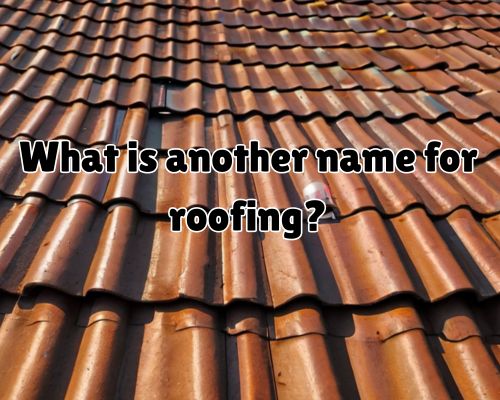What Is a Commercial Roofing Estimator? | Everything New Jersey Businesses Need to Know
If you’re a property manager or business owner in New Jersey planning a new commercial roof installation, repair, or replacement, one key player you’ll encounter early in the process is the commercial roofing estimator. But what is a commercial roofing estimator, exactly—and why are they crucial to the success of your roofing project?

In short, a commercial roofing estimator is the specialist responsible for inspecting, measuring, calculating, and providing detailed cost projections for commercial roofing jobs. But their role is far more strategic than it sounds. Especially in New Jersey’s dynamic climate—where buildings are exposed to everything from winter nor’easters to humid summers—accurate roofing estimates can protect your budget, your timeline, and your investment.
With Charles Jimerson of CJ Commercial Roofing NJ, let’s dive deeper into what a commercial roofing estimator does, how they operate in New Jersey, and how to find one who’s reputable and reliable.
The Role of a Commercial Roofing Estimator
A commercial roofing estimator is essentially the cost engineer of the roofing world. Their primary responsibilities include:
- On-site assessments of existing roofing systems
- Reviewing architectural blueprints and technical specs
- Measuring roof dimensions, slope, material needs, and structural complexity
- Calculating labor, materials, equipment, and disposal costs
- Preparing formal proposals and bid packages for clients or contractors
Their work feeds into everything from project planning to financing. A professional estimator ensures you receive an accurate quote—not a vague ballpark figure—which helps avoid surprise costs mid-project.
Why This Role Is Critical for Commercial Roofing in New Jersey
New Jersey’s commercial buildings span a wide range—from warehouses in Newark and manufacturing plants in Trenton to retail plazas in Cherry Hill and medical offices in Morristown. Each building type poses unique structural challenges and roofing demands.
Commercial roofing estimators in New Jersey must understand:
- Regional material codes and permit regulations
- Climate-related wear-and-tear factors (think freeze-thaw cycles, wind uplift, salt air near the Jersey Shore)
- Insurance compliance and liability risk
- Prevailing wages for union and non-union labor in counties like Bergen, Hudson, and Camden
In other words, estimators don’t just calculate costs—they mitigate risk by ensuring every detail of the estimate aligns with New Jersey building codes, weather resilience standards, and economic realities.
Common Roofing Systems They Estimate For
Estimators work across various commercial roofing systems, and each has unique price structures. In New Jersey, you’ll commonly see estimators handle:
- TPO (Thermoplastic Polyolefin): Popular for flat roofs due to energy efficiency
- EPDM (Ethylene Propylene Diene Monomer): Durable rubber roofing, common in colder parts of NJ
- Built-Up Roofing (BUR): Older systems found on mid-century office buildings
- Modified Bitumen: Used in retail centers and industrial facilities
- Metal Roofing Systems: Increasingly used in tech and manufacturing campuses for longevity
Each material has different installation complexities, life spans, and maintenance costs—all factored into the estimator’s calculations.
How Estimators Use Technology to Deliver Accurate Bids
Modern commercial roofing estimators aren’t walking around with just tape measures and clipboards anymore. Today’s pros use:
- Drones for roof inspections (especially helpful for multi-story buildings in Jersey City or Atlantic City)
- 3D roof modeling software like AutoCAD or RoofSnap
- Satellite imaging tools (e.g., EagleView)
- Cloud-based estimating platforms like STACK or Esticom
These tools allow estimators to produce faster, more precise bids—even for large-scale buildings like warehouses in Edison or schools in Princeton.
What to Look for in a New Jersey Commercial Roofing Estimator
Not all estimators are created equal. If you’re a business owner in New Jersey, here are key factors to evaluate:
- Local Experience: Choose estimators who understand NJ building codes, union labor rates, and permit requirements specific to municipalities like Paterson or Elizabeth. See CJ Commercial Roofing NJ for more.
- Certifications: Look for affiliations with organizations like NRCA (National Roofing Contractors Association) or certifications from manufacturers like GAF or Carlisle.
- Track Record: Ask for references and examples of recent projects—particularly ones in similar sectors like education, healthcare, or logistics.
- Detailed Proposals: A good estimator will provide line-item breakdowns—not vague lump sums.
Pro Tip: If you’re seeking roof insurance claims advice, some estimators in NJ also act as third-party verifiers for insurance adjusters.
How Estimators Support Budget Planning and Cost Control
An experienced commercial roofing estimator doesn’t just tally up numbers. They also:
- Advise on lifecycle costing (i.e., long-term costs beyond installation)
- Identify cost-saving alternatives (e.g., material swaps or phased projects)
- Flag hidden expenses, like HVAC curb modifications or water mitigation measures
- Help secure competitive bids if your job goes to tender
This makes them essential allies in value engineering and total cost of ownership (TCO) planning—especially important for facility managers juggling multiple New Jersey sites.
Why Accuracy Matters in New Jersey’s High-Cost Markets
In areas like Hoboken, Montclair, or Bridgewater—where property values are high and regulations are tight—an inaccurate roofing estimate can be a financial landmine.
A miscalculation in square footage or local labor costs can result in:
- Mid-project change orders
- Permit delays
- Cost overruns
- Loss of investor confidence
- Violations and fines
That’s why many local commercial contractors in NJ work closely with dedicated roofing estimators or outsource this role to specialized firms with regional expertise.
Local Insight: The New Jersey Roofing Landscape
In New Jersey, commercial roofing projects are influenced by several local trends:
- Energy Efficiency Mandates: Many cities require or incentivize cool roofing systems
- Storm Preparedness: Coastal areas from Cape May to Long Branch require wind uplift testing compliance
- Sustainability Initiatives: Growing demand for green roofs and solar-ready membranes in towns like Westfield and Summit
A seasoned commercial roofing estimator takes these local elements into account, tailoring estimates not only to your building—but to your business goals and compliance requirements.
Final Thoughts: When to Involve a Commercial Roofing Estimator
If you’re budgeting for a roofing project in New Jersey—whether it’s for a shopping center in Paramus, a church in Princeton, or a distribution hub in Secaucus—engaging a commercial roofing estimator early is a strategic move.
Don’t wait until you’ve already picked a contractor or pulled permits. A qualified estimator can:
- Optimize your material selections
- Ensure bid accuracy
- Uncover potential delays before they cost you money
Need a Roofing Estimate in New Jersey?
When searching for a commercial roofing estimator near you, prioritize companies with strong reputations in the New Jersey commercial roofing market. Look for providers offering free on-site evaluations, digital proposals, and clear communication.




